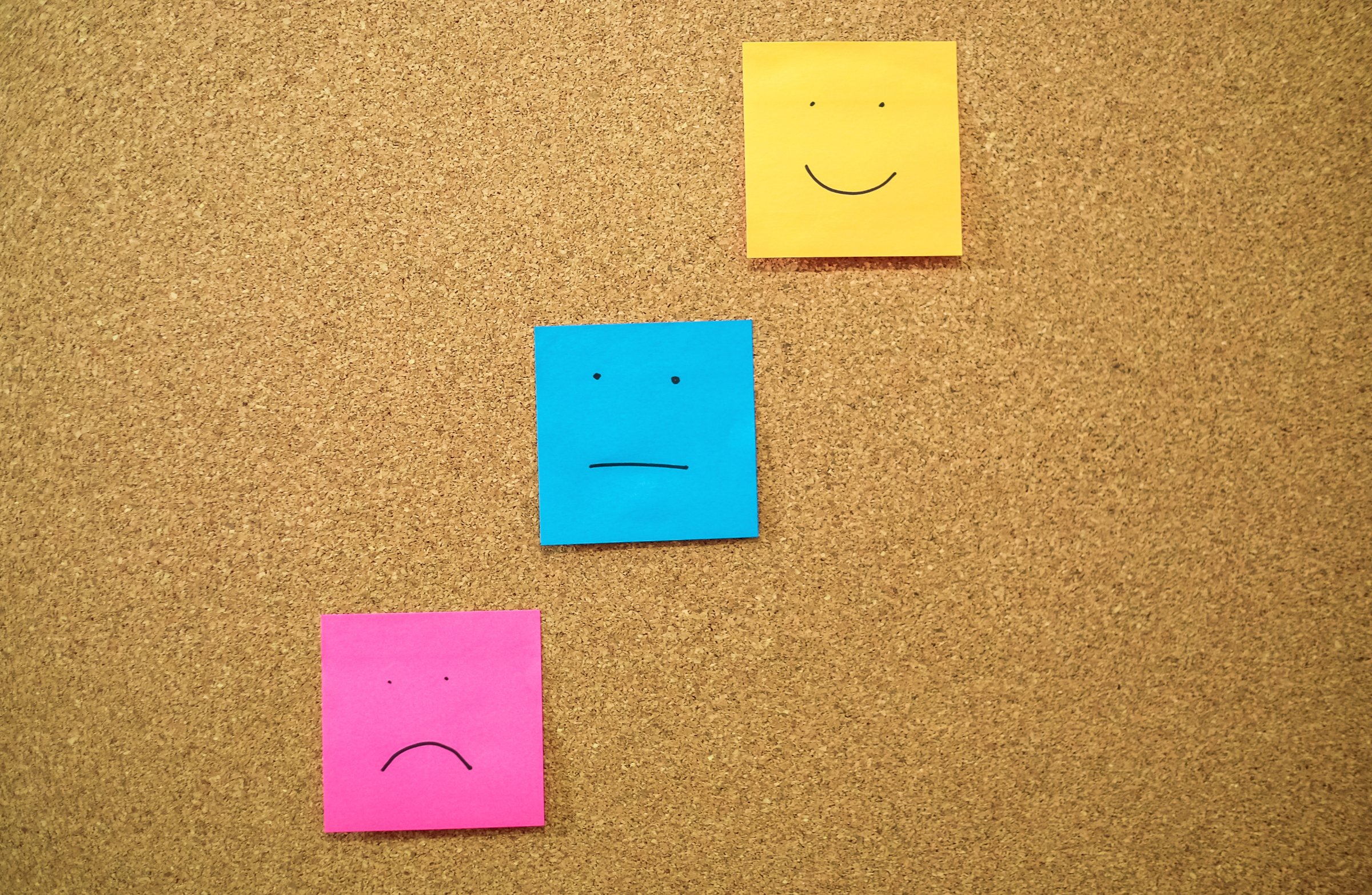
The Declaration of Independence guaranteed Americans the right to pursue happiness, and we haven’t stopped looking for it since. But despite the college courses, research labs and countless self-help books dedicated to that search, only 33% of Americans actually said they were happy in a 2017 survey.
A new paper may help explain why: We’re trying too hard.
The research, published in the journal Emotion, found that overemphasizing happiness can make people more likely to obsess over failure and negative emotions when they inevitably do happen, bringing them more stress in the long run.
“Happiness is a good thing, but setting it up as something to be achieved tends to fail,” explains co-author Brock Bastian, a social psychologist at the University of Melbourne School of Psychological Sciences in Australia, in an email to TIME. “Our work shows that it changes how people respond to their negative emotions and experiences, leading them to feel worse about these and to ruminate on them more.”
The study involved two separate experiments. In the first, a group of Australian psychology students were asked to solve 35 anagrams in three minutes — but, unbeknownst to them, 15 couldn’t be solved. Thirty-nine of the students completed this task in a room decorated with motivational posters, notes and books. The proctor in this room was also told by the experimenters to speak cheerfully, and to off-handedly mentioned the importance of happiness. Meanwhile, another 39 students completed the same test in a neutral room, with a neutral proctor. A third group of 38 students completed a solvable task in a room that emphasized happiness similarly to the first room.
Afterward, the researchers asked all students to do a breathing exercise, during which they were periodically asked about their thoughts. Compared to the other two groups, students who performed the impossible task in the “happiness room” were more likely to think back to their failure and get stuck on these negative thoughts, which was in turn associated with feeling more negative emotions. Those who completed the impossible task in the neutral room and those who completed the solvable task in the happiness room did not differ significantly in how much they thought back to the exercise.
In a second experiment, the researchers asked about 200 American adults how often they experienced and thought about negative emotions, as well as their views on how society perceives those emotions. Participants who said they felt like society expects them to be happy, or looks down on emotions such as anxiety and depression, were more likely than other respondents to stress about feeling negative emotions, and to experience reductions in well-being and life satisfaction as a result.
“When people place a great deal of pressure on themselves to feel happy, or think that others around them do, they are more likely to see their negative emotions and experiences as signals of failure,” Bastian says. “This will only drive more unhappiness.”
Bastian says the study isn’t a condemnation of trying to be happy; rather, it underscores the importance of knowing and accepting that feeling unhappy sometimes is just as normal and healthy.
“The danger of feeling that we should avoid our negative experiences is that we respond to them badly when they do arise,” Bastian says. “We have evolved to experience a complex array of emotional states, and about half of these are unpleasant. This is not to say they are less valuable, or that having them detracts from our quality of life.”
In fact, recent research has suggested that experiencing negative emotions can ultimately boost happiness, and another new study finds that stressful or unpleasant situations may help people process bad news. Bastian also adds that failure can be invaluable for learning and growth.
“Failure is critical to innovation, learning and progress,” he says. “Every successful organization knows that failure is part of the road to success, so we need to know how to respond well to failure.”
Doing so will likely take a culture change. A society that embraces messy emotions and experiences, Bastian says, is one that is poised for better mental health.
More Must-Reads from TIME
- Cybersecurity Experts Are Sounding the Alarm on DOGE
- Meet the 2025 Women of the Year
- The Harsh Truth About Disability Inclusion
- Why Do More Young Adults Have Cancer?
- Colman Domingo Leads With Radical Love
- How to Get Better at Doing Things Alone
- Michelle Zauner Stares Down the Darkness
Write to Jamie Ducharme at jamie.ducharme@time.com